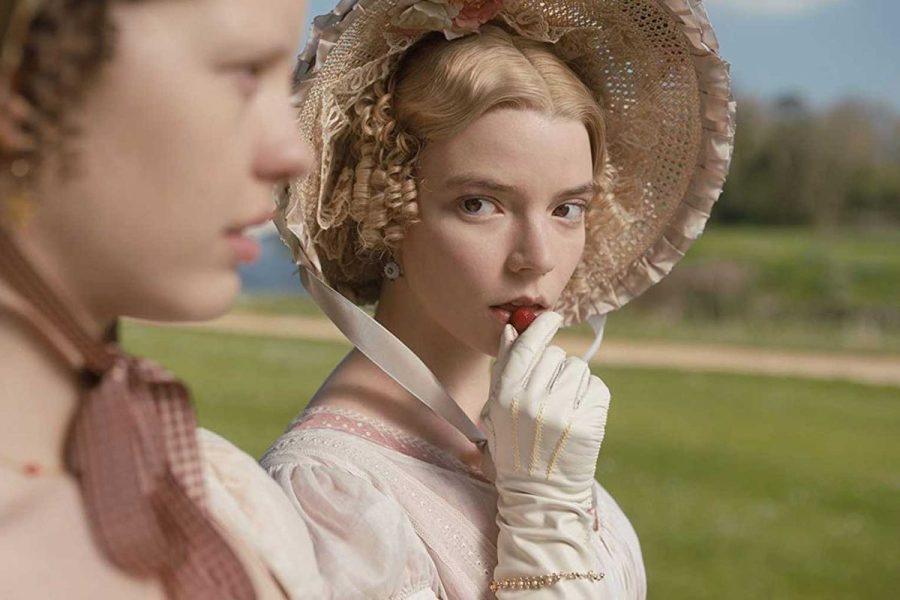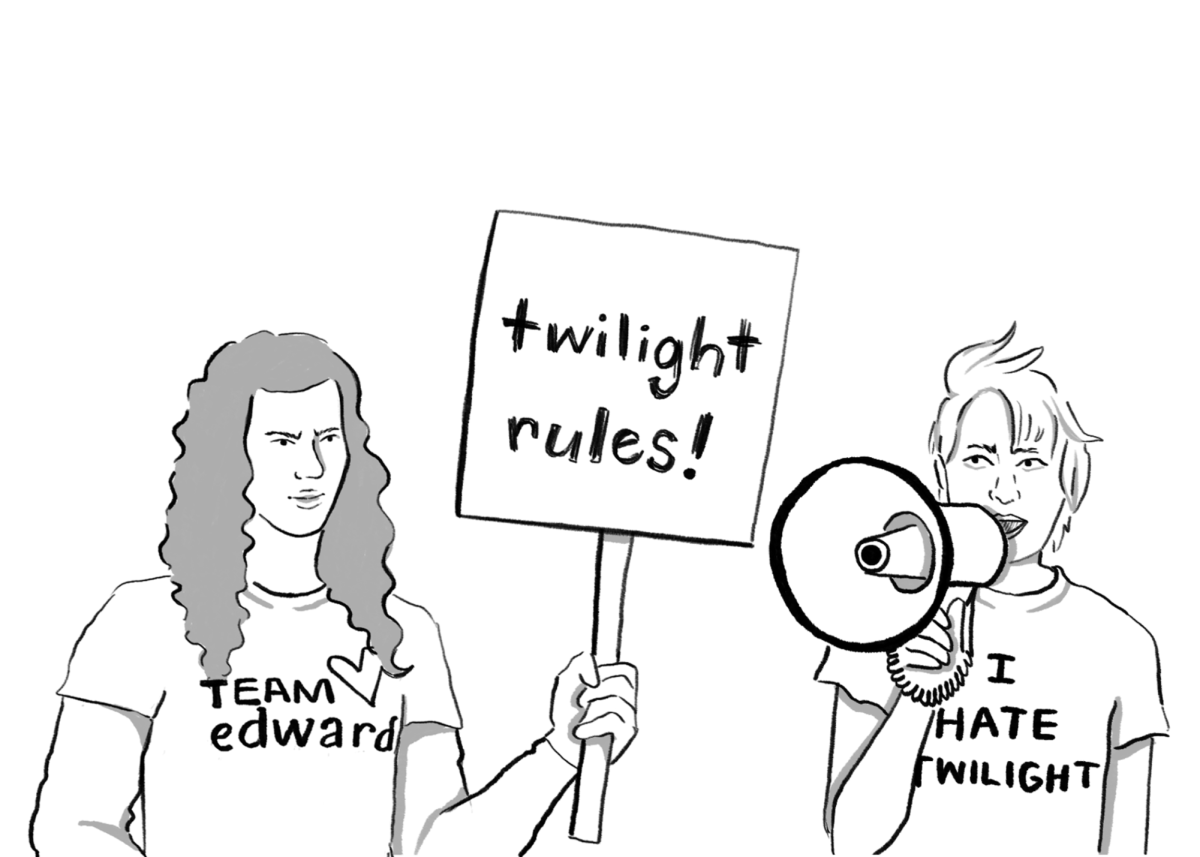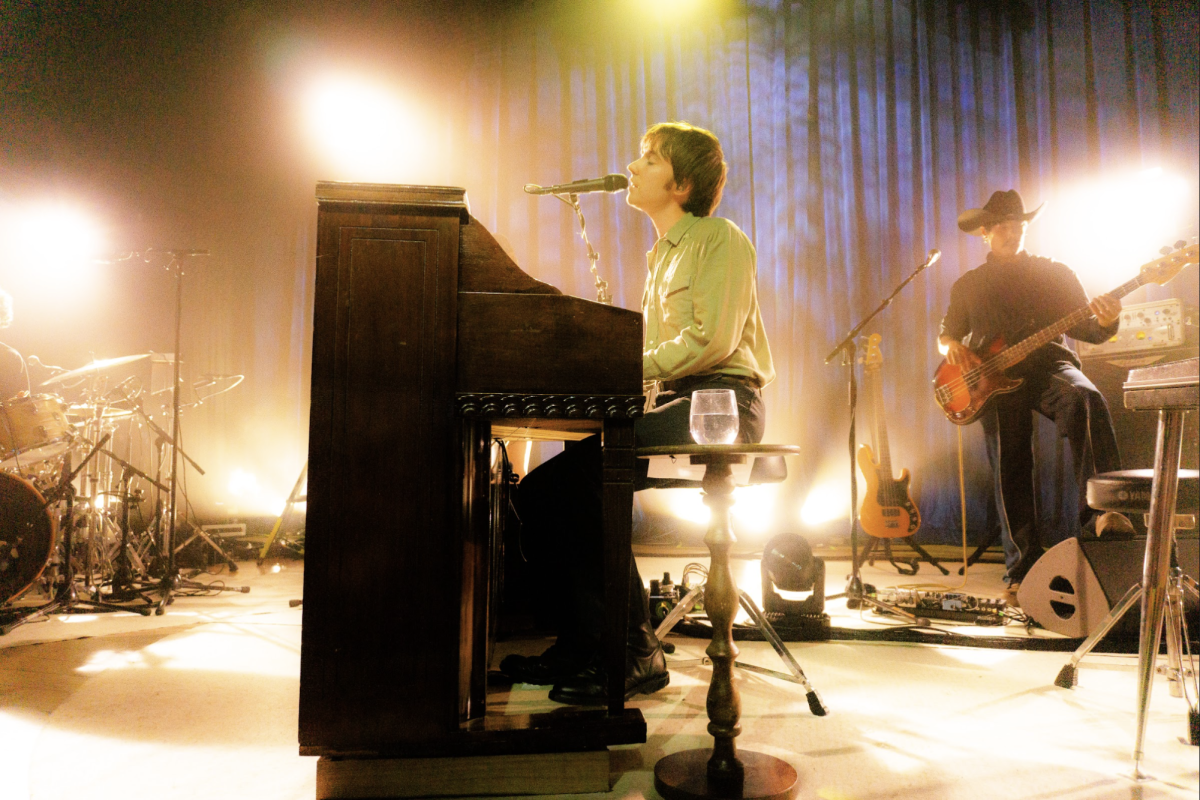Jane Austen meets Wes Anderson in Autumn de Wilde’s debut feature film
“Emma.” is not so much a period piece and not so much a romance. Yes, the film does take place in Austen’s Regency era England and it is appropriately bookended by two weddings, but director Autumn de Wilde’s insightful comedy takes place in a world so highly stylized that it would probably be more appropriate to say it merely mirrors our world, rather than is. The viewer is immediately whisked away into the heart of the bizarre social etiquette that governs the isolated and wealthy. Red-robed school girls marching in lines to school, the intimate and weighty social proceedings of the local church, and the absurd headdresses adorning gossiping gentlewomen quickly feel as natural as anything else. The story never leaves the little town it begins in, and despite the sprawling countryside and swaths of servants who move through each of the great houses, there is intentional claustrophobia to seeing the same twenty-or-so faces of every local from an appropriate social standing at every gathering.
The story has been adapted countless times, from Gwenyth Paltroth’s period-appropriate take on the titular character in the 1990s’ version of the film, to the same decade’s classic high school reinterpretation in “Clueless.” The story begins with a 20-year-old heiress, Emma Woodhouse (Anya Taylor-Joy). Having successfully arranged the marriage of her beloved governess to a local gentleman, Emma resolves to continue the fun of matchmaking her friends, whilst retaining her own power and security as a wealthy single woman. Harriet (Mia Goth), a naive schoolgirl with mysterious parentage, immediately captures Emma’s fancy, leading to a misinformed attempt to set her up with local clergyman Mr. Elton (Josh O’Connor). What results is a bizarre and enthralling love pentagon, constantly changing positions and affections as Emma’s attempts at manipulation repeatedly backfire. In a world of etiquette and subtleties, perhaps Emma isn’t quite the chessmaster she thought she was.
The hierarchies of “Emma.” are not just commented on — they are built into every aspect of the film. Heavily stylized and entirely purposeful, “Emma.” often feels like it has been choreographed; from the seamless shots of dressing and preparing for social functions to Mr. Woodhouse’s (Bill Nighy) neurotic obsession with rearranging set pieces to avoid his fears of drafts and illness, the world bends perfectly to the upper class. The servants, who often seem more like automatons than humans, are no exception. They fetch materials back and forth when required, never react to the tomfoolery of their employers, and quickly turn their backs in-synch on displays they are not meant to witness.
In another story, this might have been purely stylistic. The sets, servants included, are gorgeously furnished and make the film a joy to watch, but de Wilde’s take on “Emma.” far oversteps romantic-comedy, veering heavily into satire. Coupled with Austen’s witty dialogue and the overall self-awareness of the film, the aestheticization of social hierarchy, while stunning, takes on an unmistakable and purposely absurd level. Even before we learn of her proclivity for matchmaking, Emma easily conducts the asinine clockwork of her estate and those surrounding it. However, it is her own lack of understanding of the world she manipulates — namely, that those she disregards as too ridiculous or beneath her are just as human as she is — that ultimately leads to her missteps and overall character arc.
The acting of the film is superb as well. Fans of “Sex Education” will recognize Connor Swindells playing a different sort of role as Robert Martin, Harriet’s quiet but swoon-worthy lower class suitor, and Tanya Reynolds as the obnoxious and holier-than-thou Mrs. Elton. “Game of Thrones” fans will likely also get a kick seeing Gemma Whelan set down her sword as Emma’s mild-mannered governess. Character actor Nighy is hilarious as Emma’s neurotic father, and comedian Miranda Hart appears as an incredibly on the nose Mrs. Bates, Emma’s well meaningly absurd neighbor. Goth’s Harriet is a young and delightful one, forever wide-eyed and impressionable to all of Emma’s schemes. And of course, the titular character herself, Taylor-Joy, does an excellent job as Emma, combining careful scheming with a sheltered naivete.
With stunning costuming, witty dialogue, and carefully intentioned stylization, there is very little to criticize this “Emma.” on, aside from perhaps being too faithful to its source material. This is rarely a bad thing, but de Wilde’s creative stylized interpretation unearthed such a deep well of potential, that it would have been fun to see her pull even from it. In a world post-Greta Gerwig’s “Little Women,” de Wilde’s “Emma.” is certainly a step in the new tradition of transformative adaptations of the classics.
Grade: A
Release date: February 21, 2020
Director: Autumn de Wilde
Starring: Anya Taylor-Joy, Johnny Flynn, Mia Goth, Callum Turner















Cheryl • Mar 2, 2020 at 11:22 pm
This film Emma was so boring that we walked out it is the worst movie I have ever had the misfortune to sit through a hour of it’s so bad and so boring you would rather kill yourself than watch it
Stephen • Mar 3, 2020 at 12:25 pm
Really? I saw it today and thought it captivating, sublime and touching. Too few movies manage to achieve that.